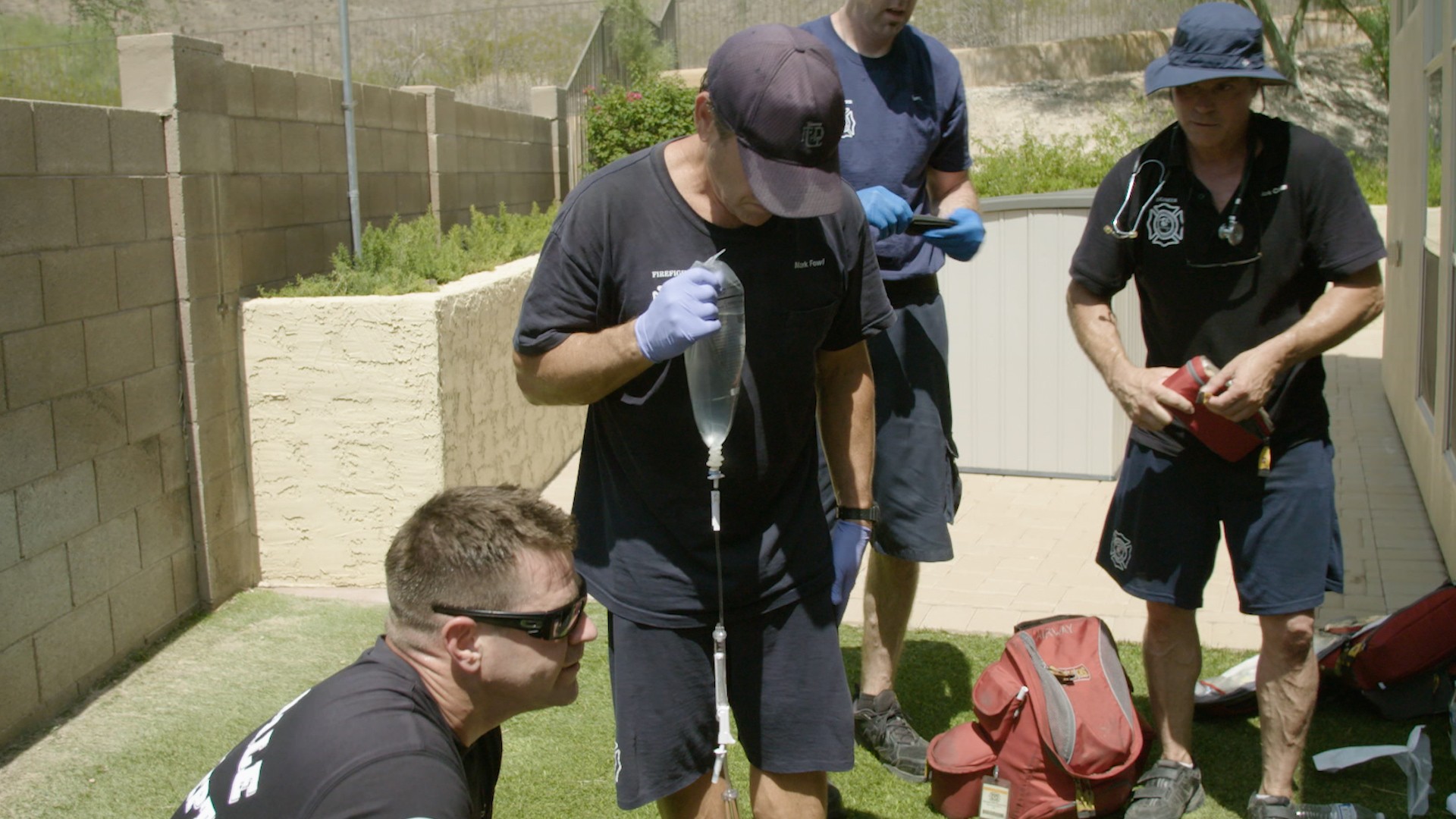Want the best of VICE News straight to your inbox? Sign up here.An Olympics construction worker died on the job on Thursday as a heatwave tore through Tokyo.Local media reports suggested the worker died of heatstroke, ramping up fears about the city’s plans to host the 2020 games next summer. Japan’s summer heat this year has killed at least 57 people since July, and it’s only gotten worse in August, with daily average highs of 94 degrees Fahrenheit in Tokyo.Reuters reported the 50-year-old worker had been laying cable outside the building that will serve as the media center for the Games. He was found unconscious and taken to the hospital, where he was pronounced dead. His identity has yet to be released.“The cause of death is still unknown,” Masa Takaya, spokesman for the Tokyo Games, told Reuters.Amid the current heatwave, there have been widespread concerns about next year’s games, which are scheduled for late July through early August. When Tokyo hosted the summer games in 1964, the event was shifted to October, to avoid the worst of the summer heat. As Reuters pointed out, that’s no longer an option, because it would conflict with other major sports like football and soccer — and the Olympics wants those viewers.READ: Olympic organizers confident Games won’t be ruined by explosive diarrheaOrganizers have been working to come up with ways to beat the heat in 2020. They’ve planted trees by venues, laid heatproof surfacing for the marathon route, and installed fans in the city’s new Olympic Stadium, the Wall Street Journal reported on Friday. Officials also told the WSJ that artificial intelligence will play a role in combating the heat: they hope facial recognition will speed up security and cut down the amount of time people spend outside.“We will finalize concrete measures after examining the results of test events,” Masa Takaya told the Journal, referencing the dress rehearsals of Olympic events that began last summer and will continue through May 2020. “Our aim remains to host a Games where all athletes can safely record their personal-best performances.”International sporting events have been a constant source of controversy in recent years. At least 11 workers died during the crammed construction schedule for the 2016 games in Rio de Janeiro.READ: Migrant workers are still being abused in QatarThe 2022 World Cup, scheduled to be hosted by Qatar, has been a human rights nightmare. Migrant workers went on strike this week, saying they haven’t been paid in months and have been given unsafe drinking water. The conditions of the workers has been called slave labor, since Qatar can confiscate workers’ passports and trap them in the country, preventing them from quitting. The Nepalese government has said at least 1,400 people from its country have died working in Qatar since it was awarded the World Cup in 2010. The International Observatory of Human Rights has estimated 4,000 workers could die by the time the tournament happens.While the Tokyo 2020 workers don’t face conditions as dire as those in Qatar, a report last year from Building and Wood Workers’ International alleged they were forced to work incredibly long hours and had an insufficient system for lodging complaints. The report said two workers had died, including a 23-year-old whose parents petitioned the government to recognize his suicide as “karoshi” — death by overwork. Cover: An aerial photo shows the new National Stadium under construction in Shinjuku Ward, Tokyo on August 9, 2019. It is the venue of Tokyo Olympics' opening and closing ceremonies, Athletics, Football and Athletics. The 2020 Summer Olympics is scheduled to take place from 24 July to 9 August 2020. (The Yomiuri Shimbun via AP Images)
Cover: An aerial photo shows the new National Stadium under construction in Shinjuku Ward, Tokyo on August 9, 2019. It is the venue of Tokyo Olympics' opening and closing ceremonies, Athletics, Football and Athletics. The 2020 Summer Olympics is scheduled to take place from 24 July to 9 August 2020. (The Yomiuri Shimbun via AP Images)
Advertisement
Advertisement
